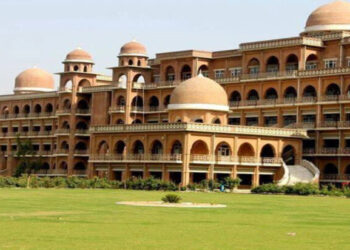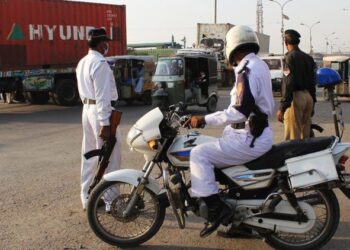A former prime minister, along with his wife and thousands of his party workers, is currently incarcerated, while election authorities are actively preventing his party’s candidates from participating. Meanwhile, another former premier, previously imprisoned and in exile, has come back and all allegations against him have been withdrawn.
Analysts and segments of the political elite are becoming increasingly concerned that Pakistan’s 12th general elections, which take place on February 8, could be the most manipulated in the turbulent democratic history of the country.
Critics highlight the state’s crackdown on Pakistan Tehreek-e-Insaf (PTI) and its charismatic leader, Imran Khan, as evidence of widespread rigging that could undermine the former prime minister and his party’s chances of a fair contest. Imran Khan, the former cricket captain who led Pakistan to victory in the 1992 World Cup, has been in jail since August 2023, facing convictions on what many describe as baseless charges in what they term “Kangaroo courts.”
Numerous PTI leaders have resigned under apparent duress, with many in hiding to avoid arrest, while others have defected to rival political parties. Several PTI electoral nominees, including Khan, have had their nomination papers rejected by the Election Commission of Pakistan (ECP). Khan was ousted from his party’s chairmanship last month due to imprisonment, replaced by Gohar Ali Khan, a relatively unknown lawyer who joined the party less than three years ago. The iconic cricket bat symbol of PTI was also denied by the country’s Supreme Court, a decision widely criticized as an attempt to weaken the fledgling democracy.
Concerns about election manipulation are not new in Pakistan, a country with a population of 240 million. Historically, elections have been tainted to varying degrees. In 1990, President Ghulam Ishaq Khan dismissed the elected Pakistan People’s Party government of then-Prime Minister Benazir Bhutto, leading to an election won by an alliance led by Nawaz Sharif. The 1990 vote was later described as rigged by the Pakistan Supreme Court in 2012.
Pakistan’s powerful military establishment has had a significant influence on the country for over three decades, either ruling directly or heavily meddling in political affairs. Some analysts believe that this time, the military has favored Nawaz Sharif, who returned to the country in November, and has seen legal obstacles swiftly dropped against his candidacy. Critics describe the current pre-polls environment as “farcical,” noting that while parties and leaders may have changed, the methods and chaos remain consistent.



























